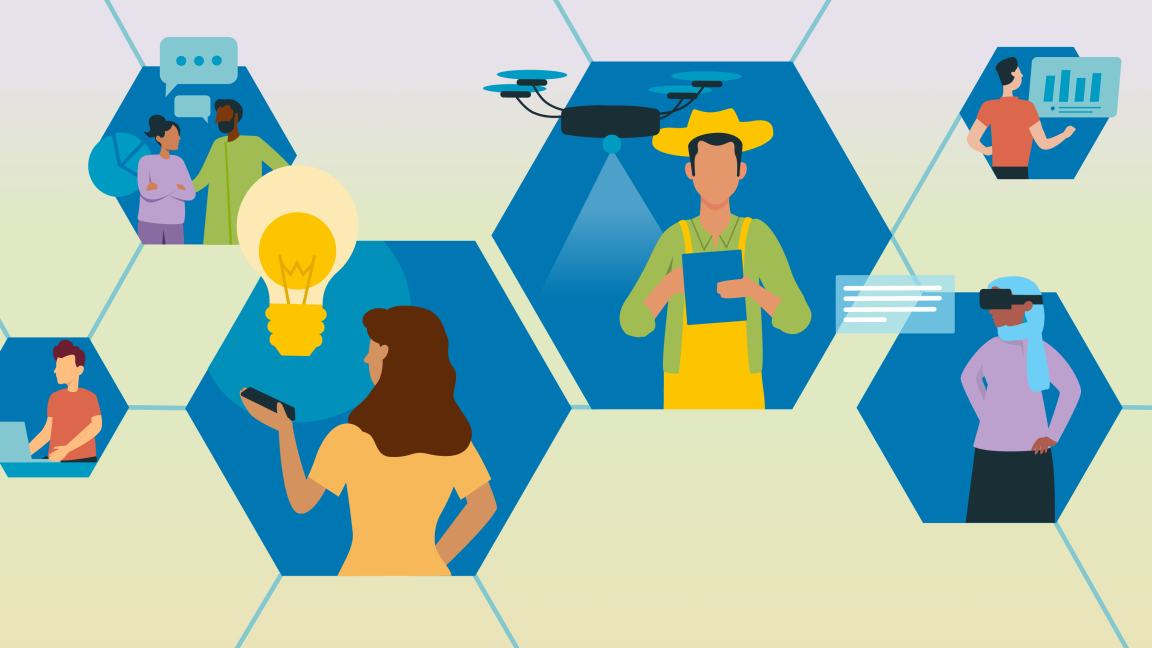Anna Sophie Herken
Vita
born on 2 December 1971 in Berlin, Germany
Responsibilities
- Auditing
- Digitale Transformation and IT Solutions
- Legal Affairs and Insurance
- Revision
In addition, she is responsible for our work in Africa.
Three questions for Anna Sophie Herken
‘Creating tangible change with strong partners worldwide’
GIZ Managing Director Anna Sophie Herken on her inner compass, issues close to her heart and the importance of international cooperation
What motivates you to work at GIZ?
Our objective is: a world worth living in for everyone! I am driven by the desire to work with strong partners worldwide to make tangible changes, precisely where they are most urgently needed. For me, this also means going back to my roots. In previous positions at the World Bank and the European Bank for Reconstruction and Development, I had already seen how concrete projects change lives.
After working in the private sector, I wanted to return to a place where I could see the impact of my work firsthand. However, international cooperation needs the private sector as a strong partner in order to achieve sustainable results. I understand both worlds – the private sector and the public sector. That’s a great advantage, as we need both for effective cooperation. I’d also like to make use of my experience to make GIZ even more agile, future-proof and impact-oriented. I’m not talking about nice concepts here, but about real opportunities: better health, safe food and fair jobs. For me, this represents both a source of motivation and a sense of responsibility.
What topics are particularly close to your heart?
In a changing world, transformation is crucial – and a central topic in my work. Digital solutions in particular can help to make processes faster and more transparent, from global health care to smart IT solutions in our company.
I attach particular importance to entrepreneurial spirit and young, innovative talents – who deserve not only support, but also real opportunities and real partners. Even today, around 60 per cent of Africans are under the age of 25. That gives rise to a huge potential that we can develop together and learn from. By 2050, Africa’s population will increase to over 2.5 billion people. The largest group of young people will then be living on that continent – ready to drive innovation, entrepreneurship and sustainable growth. We can all learn from this.
Africa shows us how much innovative power can emerge from new perspectives – be it mobile payment, decentralized energy or AI. We need solutions like this everywhere. Economic cooperation brings jobs, growth and opportunities – both in the field and in our company. But it is also clear that we need fair framework conditions to really benefit everyone. It’s all about equal access to capital, education, technology and genuine partnership.
Why is international cooperation indispensable today?
Because global crises know no borders. Around two thirds of our countries of assignment are affected by conflict, and it is precisely there that we can make the biggest differences by working together. International cooperation brings peace, combats the root causes of displacement and protects our common livelihoods – from climate to nutrition security and health.
Economic cooperation is the key: it strengthens markets, creates jobs, promotes diversification and secures raw materials – for example for the green technologies that we need in order to make Germany climate-neutral. In this way, we are investing in global stability and in our own future.
Insights into international cooperation



